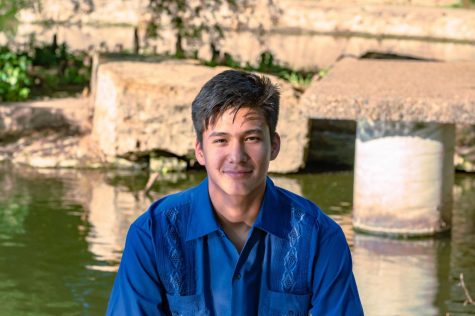Baker’s preparedness for training and response amidst nationwide sexual assault allegations
Protesters outside the Phi Kappa Psi house at the University of Kansas on Sept. 14 call for University action against the fraternity after an alleged sexual assault occurred over the weekend.
Trigger warning: Sexual Assault, Rape.
Protests have erupted on college campuses across the nation calling for the closing of fraternity houses facing sexual assault allegations.
The Phi Gamma Delta (Fiji) fraternity at the University of Nebraska-Lincoln (UNL) has been closed and suspended after a sexual assault was reported on August 24. The investigation is still ongoing, but thousands of students protested outside the fraternity calling for change and for UNL to permanently close the fraternity.
Similarly, on Monday, Sept. 13, students gathered outside the Phi Kappa Psi fraternity at the University of Kansas to protest an alleged sexual assault by one of the fraternity members. Protesters chanted and waved signs some of which read “no is not negotiable” and “boys will be held accountable.” On-going protests were held in support of the victim and to call for the banning of the fraternity. While the sexual assault is still under investigation, students believe the woman may have been drugged and sexually assaulted at Phi Kappa Psi over the previous weekend.
Assistant Dean of Students and Director of Fraternity and Sorority Life Macy Warburton explains how open lines of communication are important in preventing incidents like UNL Fiji and KU Phi Kappa Psi.
“When we have that communication and partnership, if something happens, the leadership or group is going to feel more comfortable coming to us talking through a situation when it’s at a lower level,” Warburton said. “But then if they don’t, what happens is situations will keep happening and then it gets to a point where it’s a high-profile case or something really major is happening when maybe we could’ve helped in the earlier stages.”
Baker fraternities collaborate with university leadership during the planning of parties and major social events. First, Warburton sits down with fraternity leadership to discuss the steps necessary to maintain a safe environment for everyone. Next, they make a plan for staff to be on call and able to step in, if need be.
Senior Lexie Hastie serves as the Vice President of Risk Management for Alpha Chi Omega. She believes Baker provides its students with a plethora of support and resources.
“I think because Baker is a small campus with a tight-knit community, Baker students might have more support than other campuses,” Hastie said.
Hastie explains how every new member in Baker Greek life attends a mandatory presentation about consent, sexual assault, and other important issues. However, she believes that there could be more extensive awareness provided by Baker Greek life when it comes to sexual violence.
“There is always room for Greek life to improve. I would say I am more educated by Alpha Chi because our philanthropy is domestic violence awareness,” Hastie said. “I have learned more about red flags and warning signs from Alpha Chi than from Greek life as a whole.”
In 2019, Baker University received a federal grant from the U.S. Department of Justices’ Office on Violence Against Women. Prevention, Awareness, and Campus Education (PACE) Project Coordinator Rachel Gadd-Nelson explains how the grant gives them resources to prevent sexual violence on Baker’s campus.
“The fact is that there is already a lot of collaboration in student affairs, student life, fraternity and sorority life, and athletics,” Gadd-Nelson said. “All these collaborations actually allow us to make sure we are meeting the needs of all the diverse communities at Baker.”
Bystander intervention training, healthy relationship education, and Baker Rallies Against Violence Everywhere (BRAVE), a student group that builds student leadership with regards to violence prevention, are a few notable strategies Baker implemented to prevent sexual assault.
All Baker faculty and staff, excluding Dr. Tim Hodges and Rev. Kevin Hopkins, are mandatory reporters and work to initiate the reporting process when they become aware of an incident. Gadd-Nelson explains that Baker utilizes Title IX training and reporting to ensure an appropriate response for students.
“We have strong collaborations with the counseling center and our local sexual assault support center,” Gadd-Nelson said. “No matter where a student starts, our support systems are able to wrap around that student and be there for them throughout the entire process.”
Baker students and community members can learn more about The Sexual Trauma & Abuse Care Center here, or visit the PACE office located in Long Student Center 203. Students can call 785-843-8985 for 24/7 support, and can find reporting options here. Students can also call the Student Counseling Center at 785-594-8409 during clinic hours to schedule an appointment.

Gabriel Lopez is a senior from Overland Park, Kansas. He is majoring in business marketing and minoring in mass media and public relations. On campus,...










